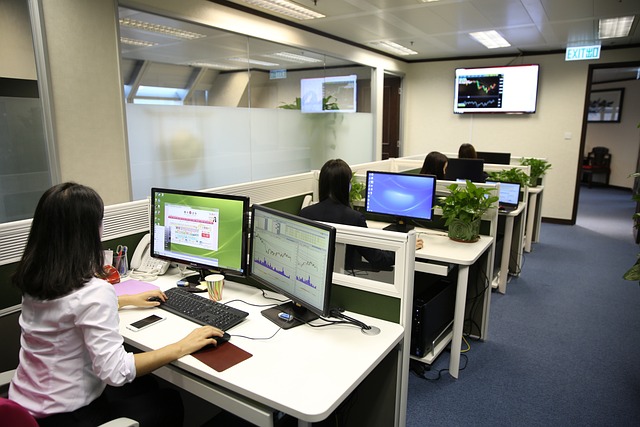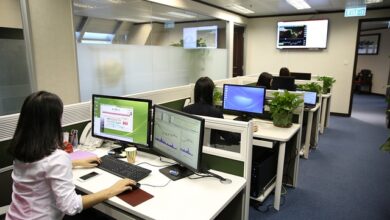Understanding French Work Culture and Office Etiquette

France is renowned for its rich cultural heritage, world-class cuisine, and picturesque landscapes. However, when it comes to work culture and office etiquette, France has its own unique set of norms and practices that may differ significantly from what you’re used to in other countries. Whether you’re planning to work in France, collaborate with French colleagues, or simply understand the professional environment better, this guide will help you navigate the intricacies of French work culture.
1. The Importance of Hierarchy and Formality
French workplaces tend to be more hierarchical than those in some other Western countries. Respect for authority and seniority is deeply ingrained in French corporate culture. Here’s what you need to know:
- Titles Matter: Addressing people by their titles (e.g., Monsieur, Madame, Docteur, Professeur) is important, especially when first meeting someone. Using “tu” (informal “you”) versus “vous” (formal “you”) can also indicate the level of formality in relationships.
- Decision-Making: Decisions are often made at higher levels of management, and employees may expect clear instructions from their superiors. While collaboration exists, there is a strong emphasis on following established protocols and procedures.
- Formal Communication: Written and verbal communication tends to be formal, especially in emails and official documents. Always start with a polite greeting (“Bonjour” or “Bonsoir”) and use proper salutations.
2. Work-Life Balance: A Priority
One of the most defining aspects of French work culture is the emphasis on work-life balance . The French value their personal time and leisure activities, and this is reflected in both labor laws and societal attitudes.
- The 35-Hour Workweek: France introduced a 35-hour workweek in 2000, which remains a cornerstone of French labor law. While not all industries strictly adhere to this limit, many companies respect the principle of reducing excessive overtime.
- Vacation Time: French employees are entitled to a minimum of five weeks of paid vacation per year, one of the most generous leave policies in the world. Taking extended holidays, especially during the summer months, is common and expected.
- Lunch Breaks: Lunch is considered an important part of the day, and many French workers take a full hour or more to enjoy a sit-down meal. Eating at your desk is generally frowned upon, and business lunches are often used as opportunities for networking and relationship-building.
3. Punctuality and Time Management
While punctuality is valued in French work culture, the approach to time management can sometimes feel more relaxed compared to countries like Germany or the United States.
- Being On Time: Arriving late to meetings is considered disrespectful, but being exactly on time or a few minutes late is usually acceptable. For social gatherings, however, it’s common to arrive 10–15 minutes late without causing offense.
- Flexible Deadlines: French professionals may prioritize quality over speed, meaning deadlines can sometimes be more flexible. This doesn’t mean tasks aren’t completed, but there may be less urgency compared to cultures that emphasize fast-paced productivity.
4. Dress Code: Professionalism Matters
French workplaces typically maintain a polished and professional dress code. Even in more casual industries, dressing well is seen as a sign of respect and competence.
- Business Attire: In corporate settings, men are expected to wear suits and ties, while women often opt for tailored dresses, skirts, or pantsuits. Colors tend to be classic and understated—black, navy, gray, and white are popular choices.
- Casual Fridays: Some companies allow for business-casual attire on Fridays, but jeans and sneakers are rarely acceptable unless explicitly stated.
5. Meetings and Communication Style
Meetings in France are often structured and formal, with an emphasis on intellectual debate and thorough discussion.
- Preparation is Key: French professionals appreciate well-prepared presentations and detailed reports. Coming to a meeting unprepared may be viewed as unprofessional.
- Debate and Discussion: The French value intellectual rigor and critical thinking. During meetings, expect lively debates and questions. Disagreements are not seen as confrontational but rather as part of the decision-making process.
- Direct but Polite: While the French can be direct in their communication, they also value politeness and diplomacy. Starting conversations with pleasantries (“Comment allez-vous?” – How are you?) before diving into business is customary.
6. Networking and Relationship Building
Building strong professional relationships is essential in French work culture. Trust and rapport are developed over time, often through face-to-face interactions.
- Coffee Breaks and Lunches: Informal settings like coffee breaks or business lunches provide excellent opportunities to connect with colleagues and clients. These moments are valued for fostering camaraderie and trust.
- Small Talk: While the French are generally reserved in professional settings, engaging in light small talk about topics like food, travel, or culture can help break the ice. Avoid overly personal questions, especially early in the relationship.
7. Labor Laws and Employee Rights
France has some of the strongest labor protections in the world, which significantly influence workplace dynamics.
- Union Influence: Trade unions play a significant role in advocating for workers’ rights, and collective bargaining agreements are common across various industries.
- Strikes and Protests: Strikes (grèves) are a regular occurrence in France, particularly in sectors like transportation, education, and healthcare. They are seen as a legitimate way to express dissatisfaction with government policies or company decisions.
- Remote Work: Since the COVID-19 pandemic, remote work has become more accepted, though many French professionals still prefer a hybrid model that combines office and home-based work.
8. Gender Equality and Diversity
Gender equality is a growing focus in French workplaces, though challenges remain. The French government has implemented several measures to promote diversity and inclusion:
- Equal Pay Laws: Companies are required to ensure equal pay for men and women performing the same roles. Firms that fail to comply may face penalties.
- Parental Leave: Both mothers and fathers are entitled to parental leave, although uptake among men is still relatively low compared to Nordic countries.
- Diversity Initiatives: Efforts to increase representation of minorities and underrepresented groups are gaining traction, though progress can be slow.
9. The Role of Coffee and Socializing
Coffee plays a surprisingly important role in French office culture. It’s not just a beverage—it’s a social ritual.
- Coffee Breaks: Short coffee breaks throughout the day are common and serve as informal opportunities to chat with colleagues. Espresso or café au lait is typically consumed standing at the counter.
- After-Work Drinks: Socializing after work, whether at a café or restaurant, is a popular way to unwind and strengthen team bonds. These outings are often seen as extensions of the workday.
10. Tips for Success in French Work Culture
To thrive in a French professional environment, keep these tips in mind:
- Respect Formalities: Use titles, maintain professionalism, and observe proper etiquette.
- Be Prepared: Come to meetings with thorough research and data to support your points.
- Embrace Intellectual Debate: Don’t shy away from challenging discussions; they’re part of the process.
- Prioritize Quality Over Speed: Focus on delivering high-quality work rather than rushing to meet tight deadlines.
- Adapt to the Pace: Understand that the French work culture values balance and sustainability over constant hustle.
- Learn Basic French: Even if English is spoken in your workplace, making an effort to speak French shows respect and initiative.


